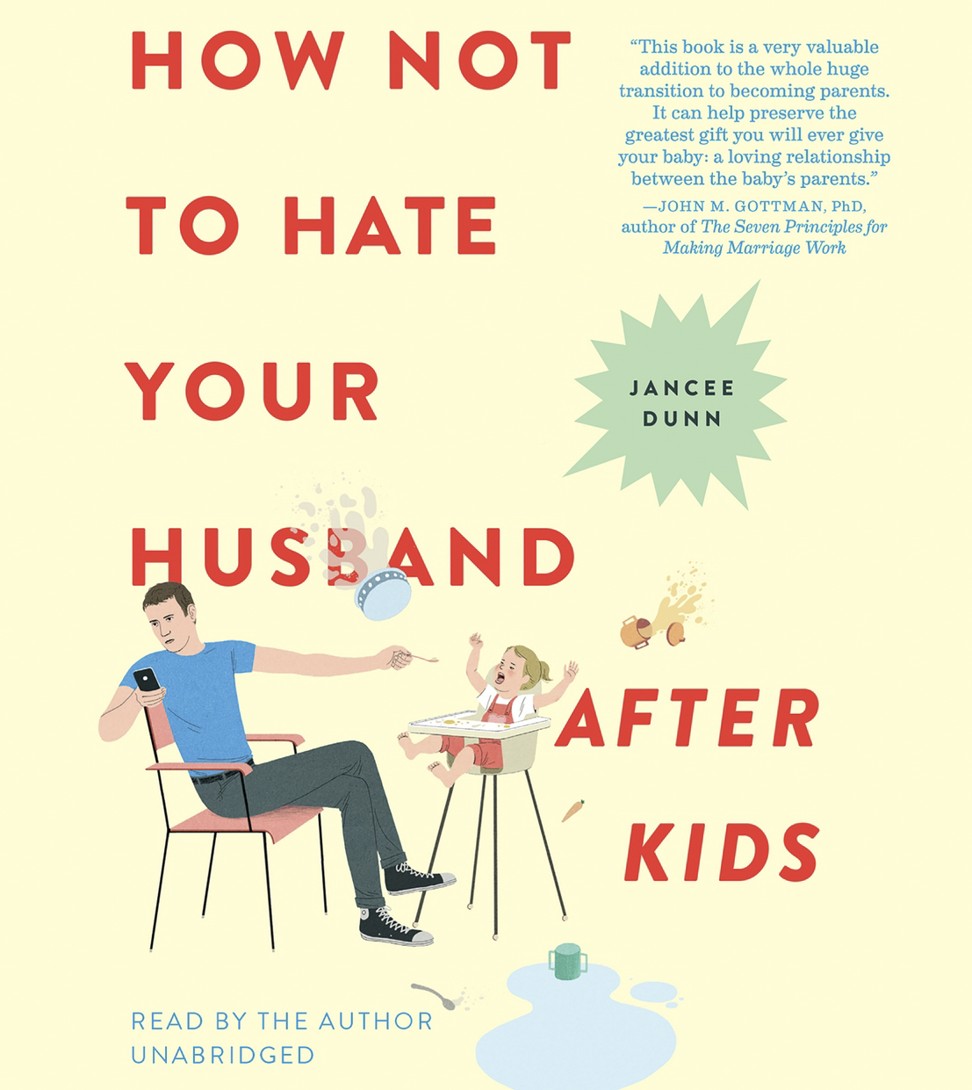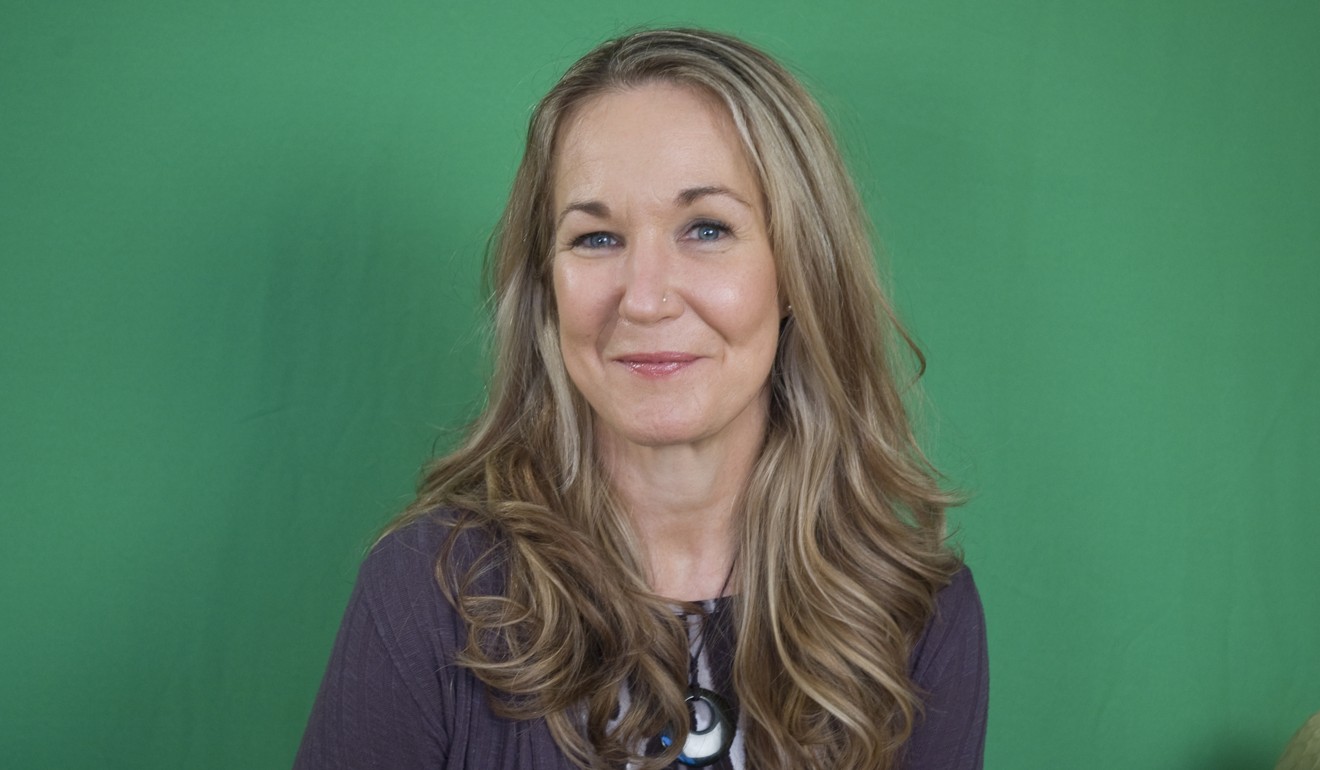
Why having children can destroy a relationship, and the book that tells you how to stay together
Being a new parent comes with lots of pressures – lack of sleep, hormone imbalances, a loss of intimacy and more – which can play havoc on a relationship, says Jancee Dunn in her book ‘How Not to Hate Your Husband After Kids’
Jancee Dunn wrote her book How Not to Hate Your Husband After Kids because she and her husband Tom rarely fought before they had a baby. “I know it’s annoying when couples say ‘we don’t fight’, but truly, we didn’t,” she writes.
“Then came the baby. Soon afterwards, we started fighting all the time. The tiny part of my brain that was still rational knew that we were sleep deprived, my hormones were all over the place, and our lives had turned upside down and we were still adjusting. That said, the force of our arguments took us both by surprise. I knew I had to do something. And when I quietly asked around, I found that other new parents were fighting as much as we were.”
Is happiness linked to long life? Hongkongers buck the trend
My husband and I would have been among them. And yes, we fought because of sleep deprivation and hormones doing a mad dance. We also fought because he/we wanted to cling onto a social life but we/I didn’t have the energy.
We fought because I was trying to redefine myself – difficult to do on little or no sleep, especially the first time around, because I didn’t know what motherhood was meant to look like or how to wear it. But we fought mostly because we were trying to realign the dynamics of our little family, to grow to accommodate the demands of the newest addition, and to find time for ourselves. It was at a time when there was so little time, and the little there was, I wanted to spend sleeping.

Hong Kong-based marital therapist Nikki Green isn’t surprised couples battle after the birth of a baby.
“When you really think about it, it’s a miracle that relationships ever survive children, especially the early years. I know many women think having a baby will strengthen their relationship, but one thing I’ve become certain about in the nearly 30 years that I’ve been working with couples: if the relationship isn’t strong to begin with, throwing a baby into the mix will only make things worse,” Green says.
Sometimes, she adds, this is because children arrive unexpectedly, or early in the relationship, and this can be challenging.
“A couple needs to have had several years of learning to live with each other and have a better understanding of who their partner really is before they bring someone else into the equation,” Green says.

That’s especially so with someone as demanding as a baby.
“They need to have progressed out of the heady and often passionately erratic ‘honeymoon period’, to have built up the familiarity and security created by knowing someone well, and finding effective ways to resolve conflict,” Green says.
For mothers, the arrival of a baby can create a power shift, says Green. “Coupled with the often unacknowledged feelings of vulnerability and exacerbated by hormone-induced emotions, the likes of which she’s probably never experienced before, is often a recipe for disaster.”
When it becomes too overwhelming and eventually comes out, it usually does so in the wrong way – as a complaint about the lack of sex – which absolutely infuriates her, who sees it as one more demand on her already overused and exhausted body
But it’s not just mum who finds all this difficult – and as much as she may be hating her husband, he may be hating her.
“He has lost his co-pilot and hang-out buddy, and has to watch as the incredibly intimate bond between mother and baby gets formed in front of his eyes, oftentimes leaving him feeling like a third wheel. All the affection and attention he used to be the sole recipient of, now gets redirected and he won’t allow himself to even acknowledge how painful the lack of intimacy is, or the loneliness he’s feeling, for fear of coming across as a bad or selfish father,” Green says.
“When it becomes too overwhelming and eventually comes out, it usually does so in the wrong way – as a complaint about the lack of sex – which absolutely infuriates her, who sees it as one more demand on her already overused and exhausted body.”
I am sure my husband felt some of this, at least at some level. I know for sure, though, that he ducked for cover whenever his exhausted wife began to hiss, spit and snarl, which meant there was a serious communication hiatus. And, of course, as much as dads miss couple intimacy, mums often do too. But everybody’s too overtired and emotional to be able to articulate their needs sensibly and sensitively, so the whole situation overcooks and escalates.
How to prevent and treat migraines with or without medication
It doesn’t end there. “New mums are often anxious in addition to fatigued which frequently leads to controlling and critical behaviour. This leaves dads feeling all the more alienated, often causing them to be either frustratingly passive-aggressive, or just aggressively confrontational in return,” Green says.
So what does Green suggest? Mums, she says, must “resist the urge to overfunction. Acknowledge and explain the feelings of vulnerability and exhaustion to your partner, and patiently and clearly let them know what they can do to help.”
Read: do not scream and shout like a fishwife/harridan/thing possessed. And when your obedient husband rallies and does as he is asked, “make sure you fully appreciate the heck out of it and let them see they have helped to alleviate things”.
Men are success-oriented and will not continue to help if they don’t see that it’s having a positive effect, Green says. “Also, remember he may have a different way of doing things, and that’s OK.”
She advises dads to recognise that the anxiety and hormones will be having a detrimental, albeit temporary, effect on their partner. They should lower their expectations of her.
“Don’t worry, with your support she’ll return to being the smart, sexy woman you once fell in love with,” she says.
“Recognise the challenges in the early years are temporary; your relationship won’t always be like this. It really is a case of reap what you sow.”

Tips from the experts
Dunn says: “Remember, mums, he can’t read your mind, so be direct. I was constantly fuming because Tom wasn’t helping me out. Somehow it didn’t occur to me to just directly ask him.
“Don’t hover and make comments if the father is feeding or dressing the baby. It’s called ‘maternal gatekeeping’ – when mothers limit or control a father’s interactions with their children – and it can permanently put a hesitant father off. And who isn’t hesitant, at first? Involve him from day one.
“Make time for each other. If you can’t do ‘date night’, reserve at least 10 minutes every day to talk – nicely – about anything but the baby and household logistics.
“Try ‘full-respect living’. No interaction should drop below the level of simple respect: remember, you’re the grown-ups now. Full-respect living is hard to do when you’re sleep-deprived and your tempers are short, but it really is a good goal to have.”
Genetics and heredity explained in She Has her Mother’s Laugh
Green urges mums to “recognise that they are the sun in the family solar system and all the other planetary members revolve around them. This means they have to remain healthy, happy, radiant, recharged and patient if the family is going to be successful. Feed everyone else from your saucer, not your cup, so you can get back to feeling as healthy, physically attractive and self-confident as you did before baby”.
Even beyond babyhood, prioritise each other. “This doesn’t mean neglect your children but do remember that one day they will grow up and leave home and find partners of their own,” Green says, because there needs to be enough glue to keep them together after the kids move out.
“Also, role-modelling a positive relationship to your children will ensure they have good relationships, too.”
Want to be happier? Invest in life experiences, not material pleasures
Green advocates taking parenting classes together so you’re on the same page. “The skills you’ll learn will help you get along better with each other too,” she says, and it will enforce the common goals that help ease parenting along.
Recognise it’s difficult for both of you and appreciate each other consistently. Be kind to one another: studies show marriages that thrive have five positive interactions to every negative one.

